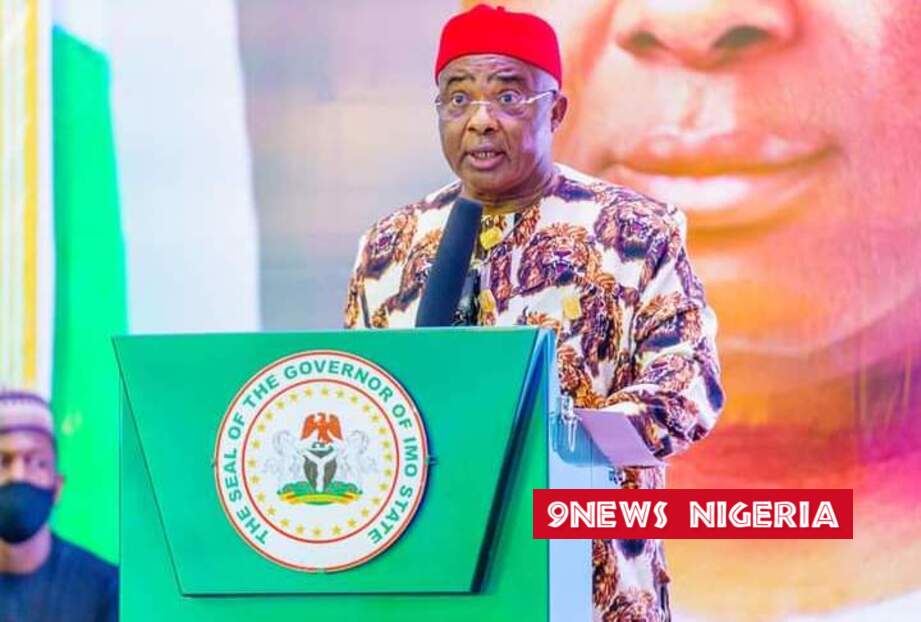Imo State Governor, Hope Uzodinma has said bandits and hoodlums would have overrun the state if not for the “prompt” intervention of President Muhammadu Buhari.
Gov. Uzodinma stated this on Tuesday after the commissioning of the dualised 36-kilometer Owerri-Orlu Road and the first phase of the dualised 53-kilometer Owerri-Okigwe Road in the state by Mr Buhari.

The president also commissioned the reconstructed Imo House of Assembly Complex.
“Your prompt intervention helped to restore peace and order in our state.
“But for your timely, prompt and fatherly intervention through the security agencies, Imo State would have been overrun by bandits and hoodlums.
“For this, I also say a big thank you Mr President,” Mr Uzodinma said.
Like other states in the South-east, Imo State has recently become a hotbed of attacks attributed to the outlawed Indigenous People of Biafra, which is agitating for a sovereign state for the Igbo-speaking people in the South-east.
Although the state government enacted a law which domesticated South-east security outfit, Ebubeagu, to complement the efforts of security agencies against insecurity, the attacks have persisted in the state.
The governor also expressed gratitude to Mr Buhari for accepting his invitation to commission the projects, saying the visit to the state, which was his second within one year, was an evidence of his love for the state.
He praised Mr Buhari for his “numerous” development projects in the South-east since he assumed office.
“You have demonstrated your love for Ndigbo through the completion of the second River Niger Bridge, a project that has been in the bucket list of Ndigbo for decades.
“Mr President I must tell you that since the end of the civil war, it is only under your administration that the federal government would do one project at a cost in excess of N360 billion. It has not been done by any government before 2015,” the governor said.
He said the president’s “encouragement and support” enabled him to complete the commissioned projects, which he claimed were ignored by successive administrations due to “their intractable and capital-intensive nature.”